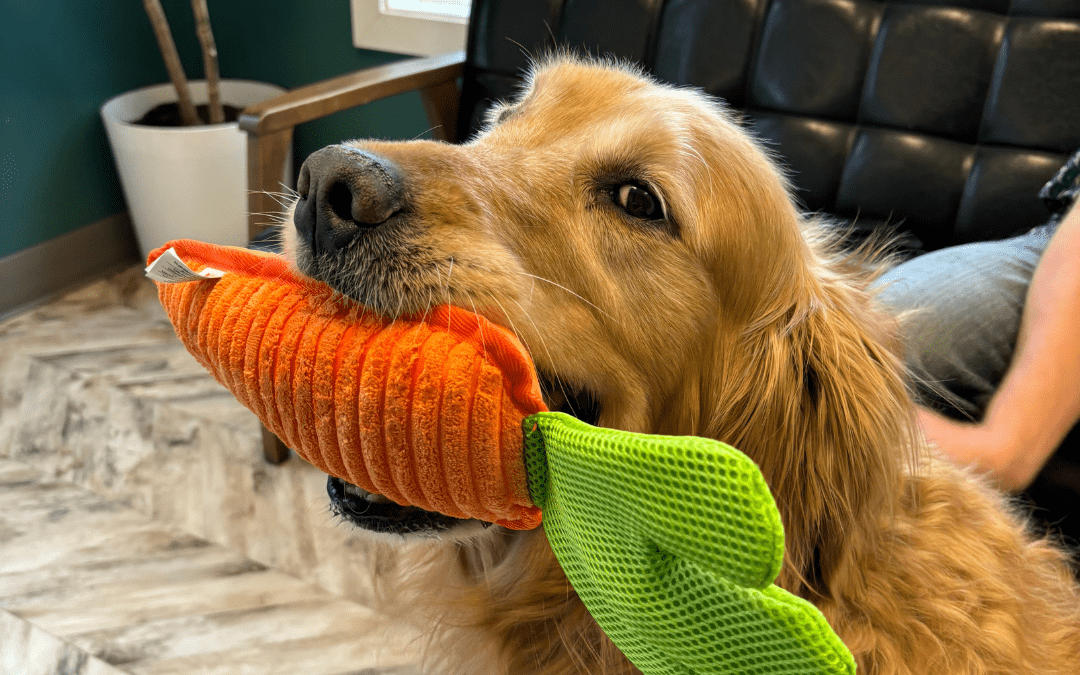At least our pets are never burdened with that daily question. However, deciding what they are going to be eating for the rest of their life could possibly beg even more questions. The good news is that we’re here to help!
There is a lot of information out there, pet food trends, warnings, and recalls, etc. Here at Whole Pet we can help you navigate all of those decisions to determine what’s best to feed your beloved family member.
Simply put, a minimally processed diet is best. When food is heated and processed into commercialized kibble, this can reduce nutrient bioavailability and there are certain byproducts produced during food manufacturing that can be inflammatory to certain pets. We have found that most of our patients, especially ones with skin and gastrointestinal issues do best avoiding highly processed diets. This could look like home-cooked, canned, dehydrated, or even raw commercialized pet food.
Home-cooking should be done under the supervision of your doctor; and your pet should be getting annual labs alongside being supplied with a balancing vitamin. When you come in to see one of our doctors for a nutrition consult, we have recipes and guidance recommendations we’d be happy to provide you with that will best fit your pet’s needs. The added benefit of home-cooking is that if your dog is sensitive/allergic to certain proteins/ingredients, we can easily create a hypoallergenic diet. Home-cooking can also be fun and exciting for your pet to try new ingredients. We encourage you to feed a formulated diet by your veterinarian and keep this website on hand to reference for harmful food items! https://www.aspca.org/pet-care/animal-poison-control/people-foods-avoid-feeding-your-pets.
We generally do not recommend home-cooked diets for cats.
If cooking is not your thing, there are other more convenient options we can recommend. Ask your veterinarian for a list of recommended food brands which include delivery/purchase of already made “home-cooked” diets. You can also check out our list of recommended brands of dog and cat food at https://davidsonvet.com/veterinary-resources/
Commercialized dehydrated diets are gently cooked or raw food ingredients that have been dehydrated to preserve freshness. It is important that you rehydrate them as directed so that your pet is getting adequate moisture in their diet. These are great for pets that travel often with their families!
Canned food diets also tend to be tolerated better than kibble. Since the moisture content is higher, it’s great for patients managing kidney disease, and even those patients who are struggling with weight loss. Simply switching to the canned version of the dry dog or cat food your pet currently loves, is also an easy way to upgrade their diet.
If your veterinarian approves a raw diet for your pet, it must be commercialized. This means that the diet is HPP (high pressure processed) to eliminate harmful bacteria (to both you and your pet) such as salmonella and e.coli. It’s still very important to practice hygienic handling of raw food and to make sure your pet is old enough and healthy enough to start eating raw food. Please do not purchase raw food at the grocery store and attempt to formulate your own raw food diet for your pet at home as there are many concerns for safety.
Speaking of safety, please also keep this site on hand to reference for current pet food recalls. https://www.fda.gov/animal-veterinary/safety-health/recalls-withdrawals
Can’t change the habits of a kibble junkie? For whatever reason, some pets, especially cats, have trouble parting ways with their beloved crunchy food. You can work out a slow transition by adding bone broth or water to soak their food and get them used to different textures. Ask your Whole Pet vet for our bone broth recipe! If committed to a kibble, please double check with your veterinarian if you have concerns, especially with grain free formulas for dogs. We want to make sure your dog is getting adequate taurine which we sometimes see problems with in certain grain free kibble diets.
Prescription diets? If your pet’s medical condition requires a veterinary prescription diet, almost all options are available in canned formulations. We recommend the canned over the kibble forms. You can also ask your veterinarian about some other fresh food prescription diets that can be obtained with a written script. Fortunately, more companies are starting to take a more integrative approach to animal nutrition so now there are more improved veterinarian formulated diets out there.
Some other great nutritional staples to include in your pet’s diet is a daily probiotic and a daily omega 3 fatty acid. The gut and immune system need a healthy biome in the body to prevent illness and inflammation. Omega 3 fatty acids are helpful for skin, heart, joint health and so much more! Ask your Whole Pet vet which ones they can send you home with.
It’s important to monitor your pet’s weight, bowel movements, and urinary habits as these can be the first signs to change when there is a possible dietary issue or need for a dietary change. Itching can also be a sign.
You are what you eat! If you are looking to better meet your pet’s dietary needs, we encourage you to come in a see one of our Whole Pet doctors to get them eating and feeling their very best 😊

